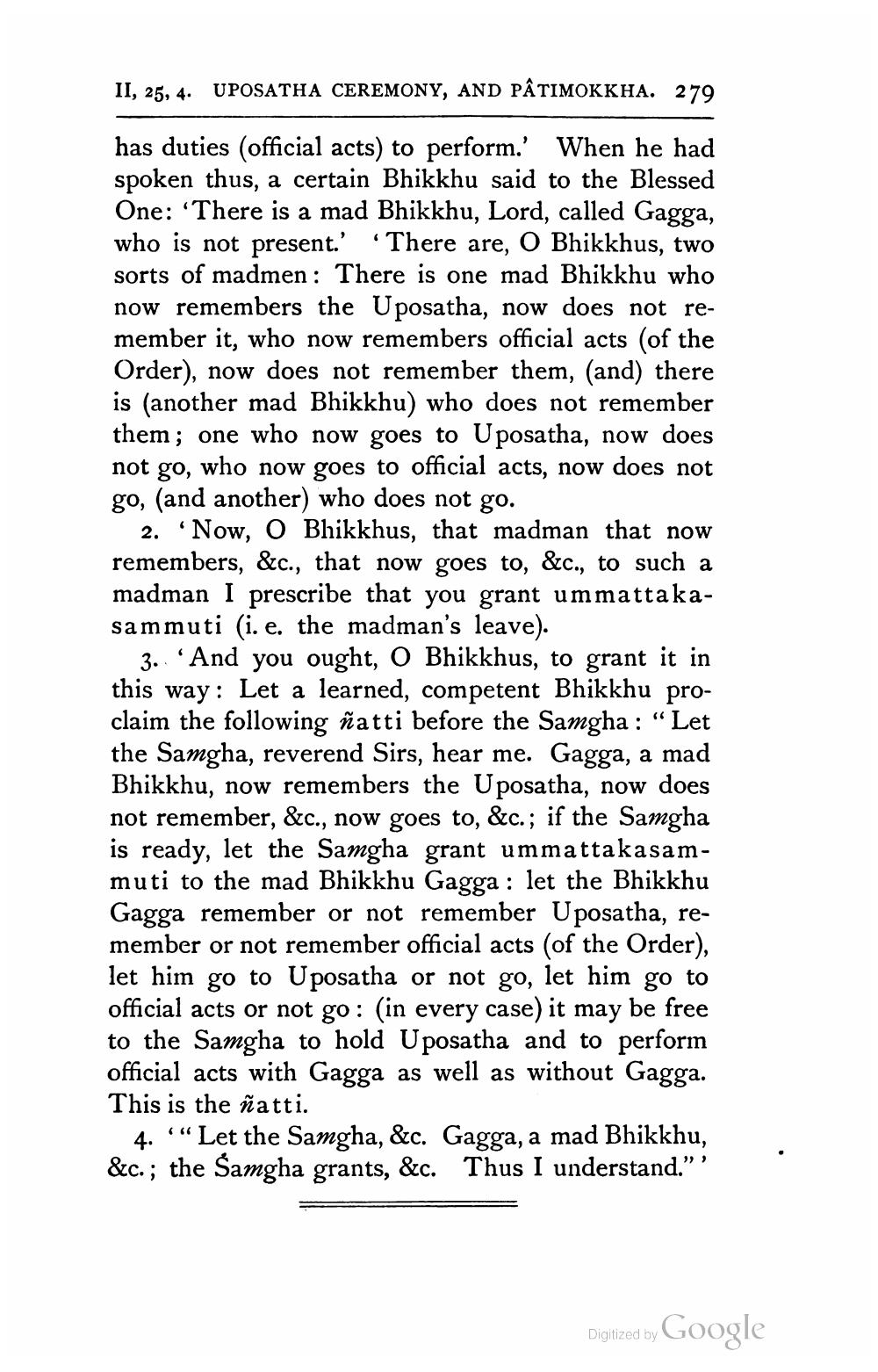________________
II, 25, 4. UPOSATHA CEREMONY, AND PÂTIMOKKHA. 279
has duties (official acts) to perform.' When he had spoken thus, a certain Bhikkhu said to the Blessed One: 'There is a mad Bhikkhu, Lord, called Gagga, who is not present.' There are, O Bhikkhus, two sorts of madmen: There is one mad Bhikkhu who now remembers the Uposatha, now does not remember it, who now remembers official acts (of the Order), now does not remember them, (and) there is (another mad Bhikkhu) who does not remember them; one who now goes to Uposatha, now does not go, who now goes to official acts, now does not go, (and another) who does not go.
2. 'Now, O Bhikkhus, that madman that now remembers, &c., that now goes to, &c., to such a madman I prescribe that you grant ummattakasammuti (i. e. the madman's leave).
3. 'And you ought, О Bhikkhus, to grant it in this way: Let a learned, competent Bhikkhu proclaim the following ñatti before the Samgha : "Let the Samgha, reverend Sirs, hear me. Gagga, a mad Bhikkhu, now remembers the Uposatha, now does not remember, &c., now goes to, &c.; if the Samgha is ready, let the Samgha grant ummattakasammuti to the mad Bhikkhu Gagga : let the Bhikkhu Gagga remember or not remember U posatha, remember or not remember official acts (of the Order), let him go to Uposatha or not go, let him go to official acts or not go : (in every case) it may be free to the Samgha to hold Uposatha and to perform official acts with Gagga as well as without Gagga. This is the ñatti.
4. ""Let the Samgha, &c. Gagga, a mad Bhikkhu, &c.; the Samgha grants, &c. Thus I understand.”'
Digitized by Google




